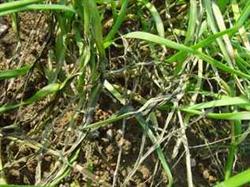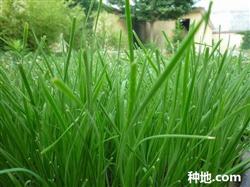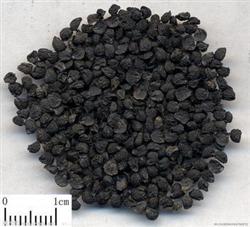Why are leeks prone to pesticide residues?

Why are leeks prone to pesticide residues? Is there any way to solve the problem of "there are so many varieties of vegetables, why are only leeks prone to pesticide residues?" With regard to the issue of pesticide residues in leeks, which is of general concern to the public, Qiao Chuanling, head of the resistance molecular genetics research group of the Institute of Zoology of the Chinese Academy of Sciences, explained: "it is not only leeks that have pesticide residues. It has always been believed that its residues are seriously affected by its growth characteristics, mainly related to insect pests and maggots born of leeks." Qiao Chuanling said that leek maggots, which are commonly known as mushroom mosquitoes of leek, are the main pests of leek. It is mainly harmful to the bulbs and tender stems in which the larvae gather in the underground part of leek. After the leek was injured, the aboveground leaves were thin, withered and yellow, wilted and broken, rotted or died. "because leek maggots are hidden in the soil, a large number of highly toxic pesticides must be sprayed, and it is more common to irrigate with toxic organophosphorus pesticides, such as parathion and methyl parathion." Qiao Chuanling said that through this operation, a large amount of organophosphorus pesticides will be absorbed by the roots of leeks, and the organophosphorus pesticides that enter the inside of leeks through the roots will not be easily washed off. Qiao Chuanling told reporters: at present, 23 kinds of pesticides have been banned in China, including parathion, monocrotophos, methamidophos and herbicide, while 19 pesticides are restricted to vegetables, fruit trees, tea, and so on. For many consumers are concerned about the problem is not the bigger the neat and clean leek is the more toxic pesticides soaked out? Li Wanmin, president of Shouguang Leek Cooperative in Shandong Province, said that the growth of leeks requires the use of nitrogen, phosphorus, potassium and other organic fertilizers and trace elements, and the use of organophosphorus pesticides does have a certain phosphate fertilizer effect on the growth of leeks. After use, the growth of leek is obviously strong, become thick, oil green, and look more beautiful. It should be said that large and neat leeks may be treated with organophosphorus pesticides, and there may be certain pesticide residues, but it cannot be said that "bigger, neat and clean leeks are soaked in toxic pesticides." Li Wanmin said. At the same time, he also said that because there are more flies in summer, so the dosage is relatively large. Qiao Chuanling suggested that if people eat vegetables, melons, fruits, and other agricultural products with more pesticide residues for a long time, it will be harmful to their health, and long-term low-dose organophosphorus pesticides can cause chronic poisoning and may cause carcinogenic, teratogenic and other hazards to the human body; acute poisoning can cause muscle spasm, pupil contraction, dyspnea, and even death. If you have bought leeks, you can't judge whether there are a certain amount of pesticide residues on leeks. The best way is to use cidol for cleaning fruits and vegetables, which are non-toxic and side-effect-free cleaning agents that can degrade organophosphorus and other pesticide residues. In addition, Qiao Chuanling also taught the reporter a little method: "because pesticides are more likely to decompose and volatilize in an alkaline environment, you can use alkaline water to rinse the dirt on the surface of vegetables with water." then soak it in alkaline water (about 500 ml of water with 5 to 10 grams of alkali), stay for 5 to 15 minutes, and then rinse repeatedly with clean water. " Of course, if you think you have eaten poisonous leeks and have some discomfort, Qiao Chuanling suggests that those who can induce vomiting should vomit as soon as possible, and go to the hospital as soon as possible after vomiting. In addition, Qiao Chuanling also said that the growth characteristics of onion garlic and leek are similar, and they are also prone to pesticide residues, but the amount of onion and garlic eaten at one time is less, so it has not attracted the attention of many people. "if the onion and garlic are kept for a longer time, the pesticide residues will naturally volatilize a lot." She said. Click for more leek planting techniques click to see more vegetable planting techniques
- Prev

How to grow balsam pear in winter?
How to manage growing leek in greenhouse? What should pay attention to the greenhouse planting leek should pay attention to: first, temperature management leek like cold environment, the suitable temperature for growth is 15 ℃-24 ℃, should be appropriate during the day. In order to promote sprouting, the daytime temperature should be controlled at 18 ℃-25 ℃ after buckling shed and at
- Next

How to sow leek seeds
How to sow leek seeds? What leek seed planting methods should be paid attention to: 1. Sowing time: the Autumn Equinox can sow seeds at any time after the soil is thawed, generally from late March to early May, with spring sowing and summer sowing sooner rather than later. 2. Sowing rate: 4Mel 5kg for every 667 square meters. Raise seedlings in the open field.
Related
- Where is it suitable to grow horseradish in China? it is expected to see the middle altitude horseradish in Alishan.
- How to prevent tomato virus disease reasonably? (Control methods included)
- Many people like to plant towel gourd on the balcony. What are the main points of this method and management?
- What crops can chili peppers be mixed with?
- Fertilization techniques and matters needing attention in Tomato
- What are the grafting techniques for peach seedlings in spring?
- Harm and control methods of root swelling disease of Chinese cabbage
- What are the pests of sweet potatoes? How to prevent and cure it?
- Symptoms, causes and Control methods of navel Rot in Tomato
- The cause of "Cucumber rotten bibcock" in Farmers' planting Cucumber and its Control Plan

